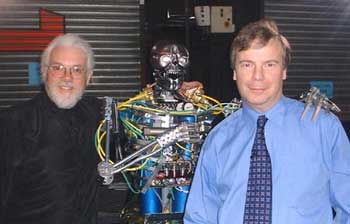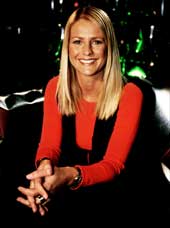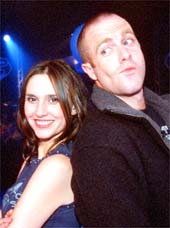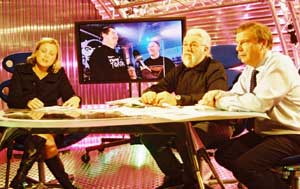Techno Games
(→Web links) |
(→Web links) |
||
| Line 61: | Line 61: | ||
== Web links == | == Web links == | ||
| - | Watch the show on streaming service [http:// | + | Watch the show on streaming service Mech+: [http://www.mech-plus.com/techno-games-2000 Series 1], [http://www.mech-plus.com/techno-games-2001 Series 2], [http://www.mech-plus.com/techno-games-2002 Series 3], [http://www.mech-plus.com/techno-games-2003 Series 4] |
[http://en.wikipedia.org/wiki/Techno_Games Wikipedia entry] | [http://en.wikipedia.org/wiki/Techno_Games Wikipedia entry] | ||
Revision as of 23:28, 4 February 2024
Contents |
Host
Ulrika Jonsson (2000)
Jayne Middlemiss (2001)
Philippa Forrester (2002-3)
Co-hosts
Reporters:
Ed Hall (2000-1)
Sophie Blake (2000)
Julia Reed (2001)
Simon Scott (2002-3)
Andy Collins (2002)
Liz Bonnin (2003)
Techsperts: Noel Sharkey and Martin Smith
Commentator: Barry Davies
Broadcast
TV21 for BBC Two, 20 March 2000 to 16 March 2001 (15 episodes in 2 series)
Mentorn for BBC Two, 18 March 2002 to 28 March 2003 (20 episodes in 2 series)
Synopsis
The Orb, 2Unlimited and The Shamen play The Crystal Maze style games to determine who is best.
No, not really, this is a spin-off from the hugely successful Robot Wars but instead of fighting (read: pushing your opponent into the big House Robots/Pit) they do other Olympic-y things like run! Swim! Climb! Fill out tax returns! (A demonstration event at Sydney 2000).
So school kids and university students build robots to win certain events. Some of these events had rules though, robots for the 15m sprint had to be walking robots, not wheely robots. There was a similar rule with the swimming event.
Although she sometimes seemed out of place, Ulrika hosted the show well - ably assisted by two judge blokes from Robot Wars for event analysis. Thankfully, the excellent Ed Hall was on hand to introduce the events and subtly mock everything whilst some model-type tried to look interested and nodded on cue while interviewing by numbers the various engineers and teams. Commentary for the events was provided by the last bastion of professionalism, yes, he who is Barry Davies.
By far the best part of the show was the robots themselves, and it was a great idea to give a good prize (flying the team out to NASA no less) for the most original robot to compete. Correctly in the first series this was given to Skeletron, a rather cool looking humanoid climbing robot who was slow but looked the business and did make it to the top of the rope climb.
 Regular Techno Games pundits Professors Noel Sharkey and Martin Smith with very cool rope-climbing robot Skeletron
Regular Techno Games pundits Professors Noel Sharkey and Martin Smith with very cool rope-climbing robot SkeletronDespite its good intentions the show lacked any pace whatsoever - 20 minutes of build-up, interviews, chat, more analysis and repeats of the actual event in a 27 minute show doesn't work.
The set up for the second series was beginning to get somewhere. Jayne Middlemiss loosened up the presenting style and there was some jolly banter between her in the studio bubble and Ed Hall in the events hall. The range of events was increased, although the quality of entry still left a lot to be desired. Is this really the best that British Engineering can do? Well, given that the idea is that schools get a good share of the airtime rather than the usual Scrapheap-style professional bodgers, yes it is.
Theme music
Christopher Bemand
Web links
Watch the show on streaming service Mech+: Series 1, Series 2, Series 3, Series 4




